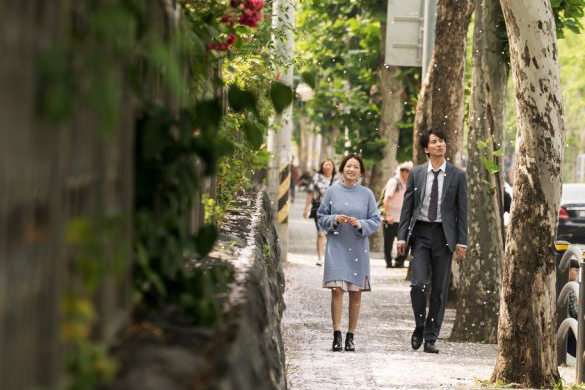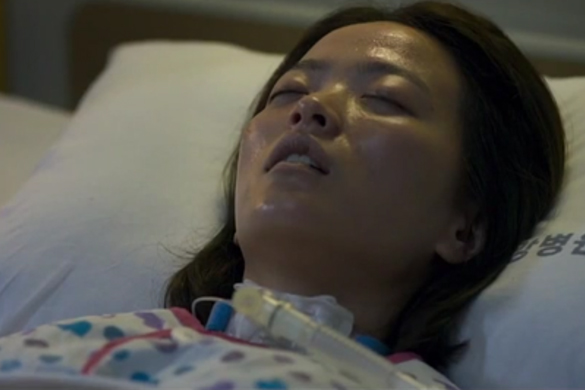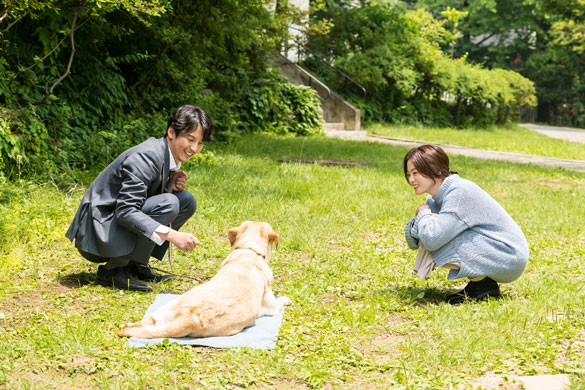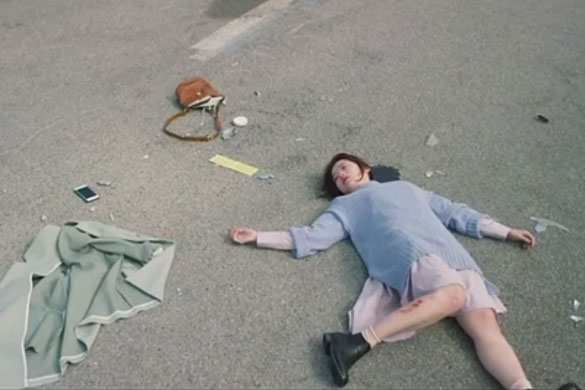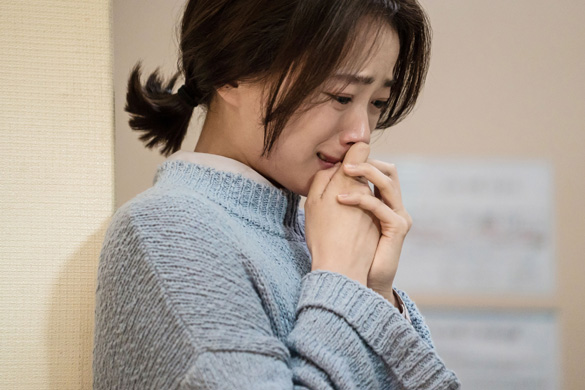
 |
|||||
After a period of mourning in solitude following the death of his wife, Gang-soo (Kim Nam-gil) somewhat reluctantly returns to his job as an insurance fraud investigator. Almost immediately, he is assigned the case of a visually impaired young woman – Mi-so (Chun Woo-hee) – who is in a coma as a result of being knocked down on a busy road. On attending hospital to check on the condition of the comatose and severely injured accident victim, Gang-soo is approached by another young woman also claiming to be Mi-so and though he initially dismisses her completely on subsequent interactions it becomes clear that only he can see her, leading him to the shocking realisation that the woman is in fact Mi-so’s out of body spirit. As a bond begins to grow between the bereft insurance fraud investigator and the accident victim’s spirit, Gang-soo’s efforts to find out what happened to Mi-so become not only deeply emotional but also wholly personal...
Review: Those who have seen virtually any of director Lee Yoon-ki’s previous work – This Charming Girl, My Dear Enemy, etc – will likely be fully aware that he is an absolute master at showing characters’ innermost feelings and emotions, more often than not within otherwise seemingly simple stories centred on what often appear to be (outwardly, at least) day-to-day events and everyday interactions in ordinary characters' lives. As such, on numerous occasions in his films, even outwardly passing moments can and do have an underlying depth the gradually surfaces to ultimately be of importance to the stories as a whole, in the process making them more important, more vibrant, more vital than they may at first appear.
So, why is this idea of abandonment so important? Well, for one it enables the bonding of Gang-soo and Mi-so to take on an almost soul mate or kindred spirit quality, if you will. Mi-so, we learn, is an orphan, having been unceremoniously dumped and abandoned by her mother as a child. Though she, like Gang-soo, in the early stages of their odd, otherworldly relationship would never admit that her feelings of abandonment still linger – she, in fact, goes to great lengths to (falsely) claim she’s perfectly happy in spirit having grown up alone – as the full state of play unfolds we realise just how much those denied feelings have played a part in her life past and present. Secondly, each character completely understanding the other's feelings of abandonment leads directly to events forming the very core of a large part of the second half of the narrative, but even that’s only part of the story. For, even though Gang-soo and Mi-so have equally important parts to play in proceedings, and symbiotic ones at that, overall One Day stands as Gang-soo’s emotional and cathartic journey to understand and come to terms with the loss of his wife. As such, his relationship with Mi-so ultimately shows that the abandonment that has destroyed him was in reality far from what he perceived it to be, giving him at least a fighting chance of mending and moving on. I have to admit to (initially) having somewhat of an issue with a pivotal decision made and an action taken by Gang-soo at the culmination of the tale but for the above themes, ideas and subtext statements to wholly succeed, the narrative couldn’t really have been allowed to end in any other way. As such, I can accept and understand Gang-soo's decision even if I wouldn't or couldn't have chosen to do the same. Certainly, it adds a thought-provoking level to proceedings too, depending on your viewpoint. Fear of spoilers prevents me from being any less vague on the subject but on watching One Day I guarantee you'll instantly know the moment I'm referring to, as soon as it appears.
The decision to give Mi-so's spirit normal sight (as opposed to the visual impairment suffered by her flesh and bone counterpart) is rather inspired, allowing her joy at seeing everyday things for the first time – and indeed seeing life unfolding around her – to be perfectly contrasted with Gang-soo's (initial)dark, bleak outlook and his blaming of life itself for its cruelty in taking his wife from him.
ONE DAY (어느날) / 2017 / Directed by Lee Yoon-ki
|
|||||
All images © OPUS Pictures, CGV Arthouse Review © Paul Quinn |
|||||
